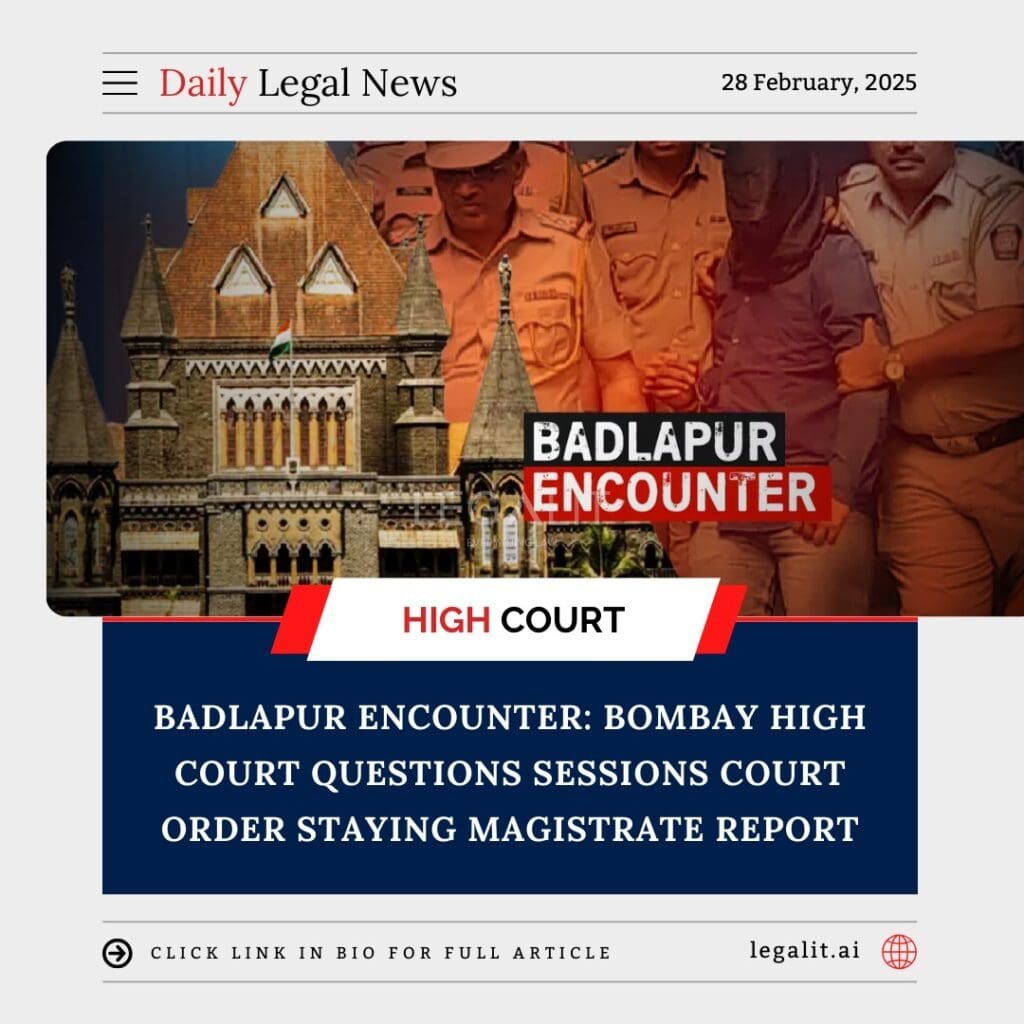
Background
The Bombay High Court has raised concerns over a sessions court’s decision to stay a magistrate’s report on the Badlapur encounter case. The matter pertains to a controversial police encounter in Badlapur, where questions have been raised regarding the legality and procedural fairness of the operation.
A magistrate had conducted an inquiry into the encounter and prepared a report, but a sessions court subsequently put a stay on its findings. This led to a legal challenge questioning the basis for the stay order and the implications for transparency and accountability in encounter cases.
Court’s Rationale
The Bombay High Court, while reviewing the sessions court’s stay order, made key observations:
- Legality of the Stay Order
- The High Court questioned whether the sessions court had the jurisdiction to halt a magistrate’s inquiry report, which is mandated under legal provisions governing custodial deaths and encounters.
- The court sought clarification on the legal grounds invoked by the sessions court in issuing the stay.
- Transparency and Public Interest
- The court emphasized the importance of judicial oversight in encounter cases to prevent misuse of power by law enforcement agencies.
- It highlighted the need to ensure that inquiry reports are not arbitrarily withheld, especially in cases involving alleged human rights violations.
- Right to Information in Encounter Cases
- The Bombay High Court reiterated that magistrate inquiries serve as a crucial mechanism to maintain accountability in police actions.
- It noted that staying such reports without strong legal justification could obstruct the process of justice.
Existing Measures
- Judicial Inquiry Requirement: Under the guidelines set by the Supreme Court and the National Human Rights Commission (NHRC), all police encounters resulting in death must be subjected to an independent magisterial inquiry.
- NHRC and Court Oversight: The NHRC has repeatedly stressed the importance of transparency in encounter cases and has directed that inquiry reports be disclosed unless there are compelling reasons to withhold them.
- Previous High Court Rulings: The Bombay High Court has, in past cases, stressed the importance of making such reports available to ensure fairness in investigations.
Conclusion
The Bombay High Court’s intervention highlights the judiciary’s role in ensuring that police encounters undergo proper scrutiny. The outcome of the case could set an important precedent on the accessibility of magisterial reports and the limits of judicial interference in inquiries related to encounters.